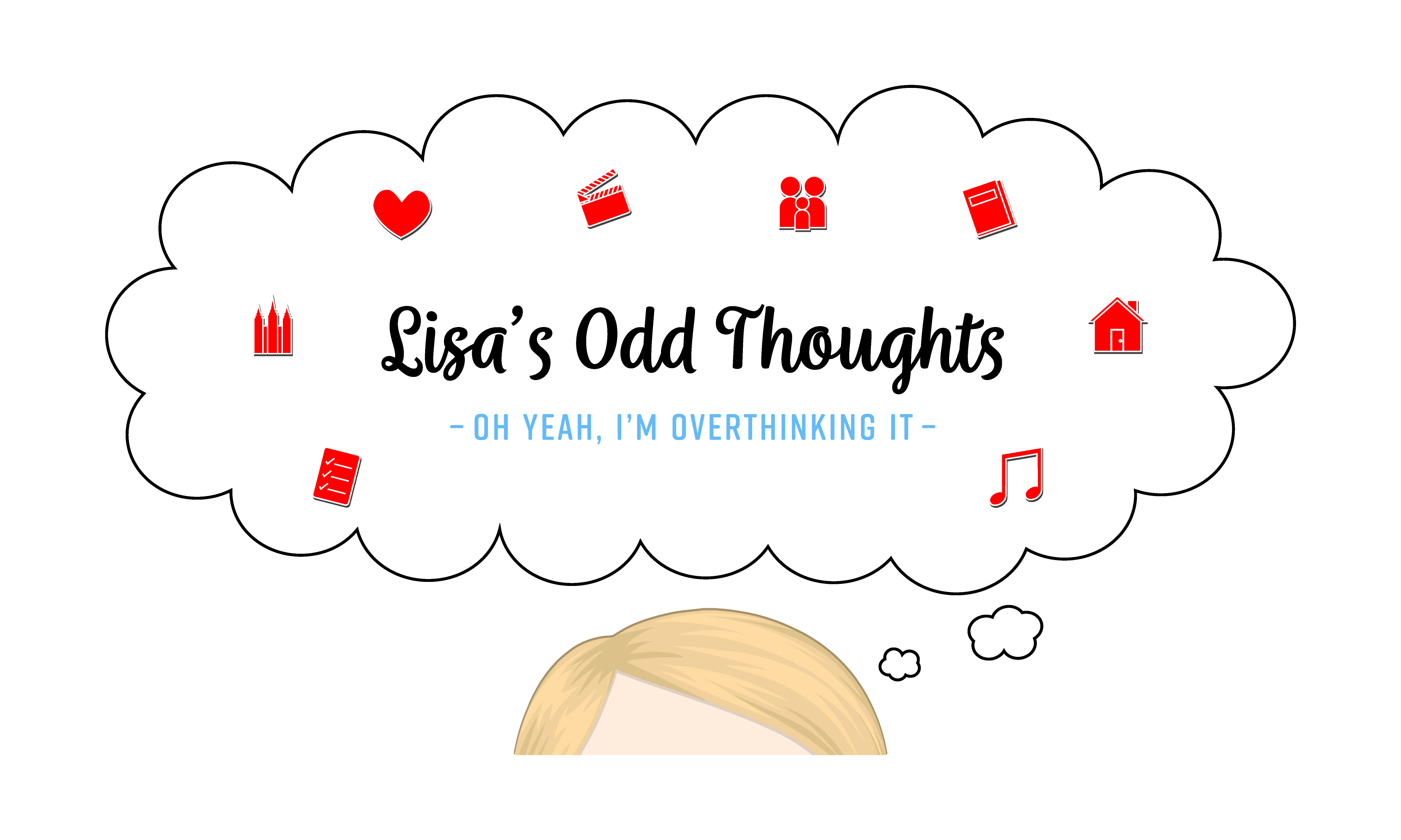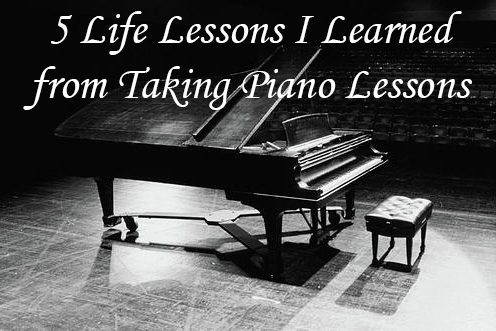I started piano lessons when I was in first grade, a wee little six-year-old, and I continued all through high school ending with my senior recital a few weeks before I graduated. Since then I’ve played often in church, with friends, for fun, and even taught my own little studio of piano students for a few years, a job I found both challenging and wonderfully rewarding.
Playing the piano is a skill and gift I plan to use for the rest of my life and also pass on to my own children. But more than just enjoying the piano for its musical aspects, I’ve learned through the honest, harsh lens of hindsight that learning to play the piano offers countless more benefits than just teaching musical ability. There are many, but here are the most five most significant non-musical life lessons I learned from taking piano lessons:
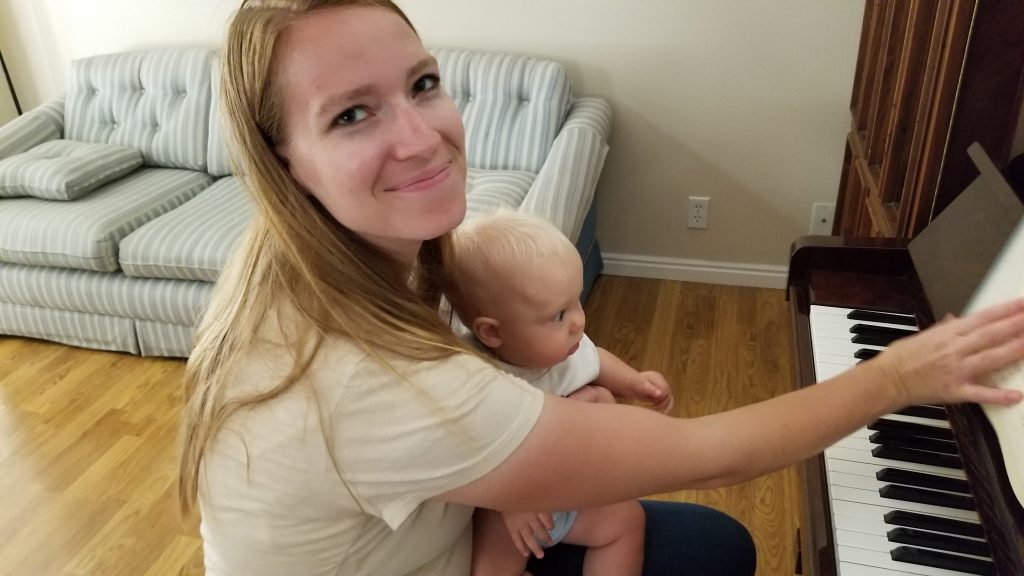
1. Life is Often Hard and Boring, but We Do It Anyway.
As a child, taking piano lessons wasn’t a choice for me: it was a requirement my mother firmly enforced. All four of my brothers and I had to take piano, no questions asked. We were given more freedom as when to quit once we reached about middle school age, but when we were young children it was not a choice. Practicing the piano fell under the same category as homework and chores; no TV, friends, or computer until it was done.
Despite my current love of piano, I remember back in those early years having very difficult days when I did NOT want to practice and I did NOT want to take lessons anymore. Believe it or not, but taking piano lessons isn’t always amazingly thrilling; sometimes piano is simply hard and boring. There’s no cushy way to say it.
On such hard and boring days, I pouted and cried and threw my fair share of tantrums. Still, my mom was firm in her resolve. No matter how hard or how boring, no matter what, I knew I had to practice the piano.
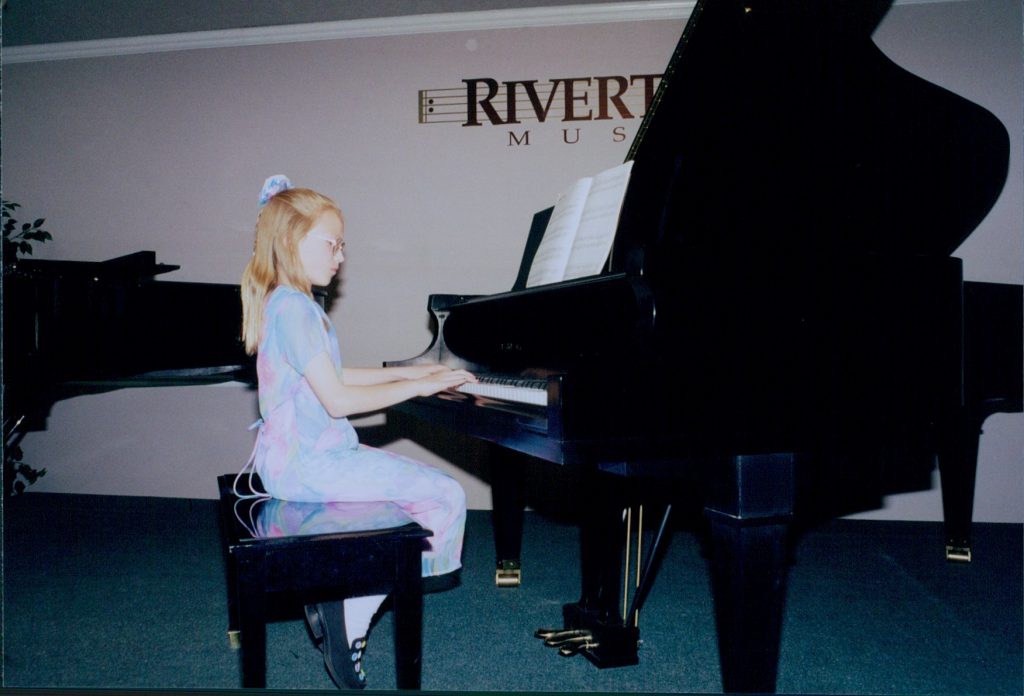
There are often things in life that are difficult or dull, but we have to do them. School, work, church, relationships, parenting, practicing the piano, you name it! All those things (and countless more) have great benefits, of course, but sometimes they are just plain hard and boring. Such is the nature of reality. Life isn’t a constant amusement park; more often than not, life requires us to do hard and boring things, but we do it anyway because it has to be done.
2. Life Requires Patience and Long-Term Investments
In high school I had to write a research essay about the effects of video games on children and I was quite disturbed by some of the results I found. Video games are extremely addicting because they access the instantaneous pleasure center of the brain and light it up over and over and over and over (more recently, social media and smartphone games trigger the exact same, short-term pleasure, addictive part of our brains).
Such constant, short-term stimulus dulls the long-term pleasure sensors of the brain. Therefore, children who played excessive amounts of video games were more likely to struggle finding entertainment from almost anything else.
This study I read pointed out that activities such as sports and playing musical instruments take years to master, and so immediately are lost on video-game addicted children; their brains can’t handle not feeling instantaneous pleasure and success from such an activity.
As already discussed, learning piano is often hard and boring, but it should be thought of as an investment for the future. Parents don’t want their children to be playing “Mary Had a Little Lamb” forever; they want them to be performing Beethoven! But parents have the foresight to understand that a student must take it one step at a time—Beethoven will come in the future, but for now “Mary Had a Little Lamb” is a good start.
Children, however, are often incapable of envisioning the future. For them, even middle school and high school are worlds away, let alone adulthood. I remember I had one student (8 years old at the time) in particular who always complained, week after week, that piano wasn’t fun. Oh, how I wish I could have made her understand that practicing scales and memorizing notes on the staff wasn’t fun now, but playing fun and passionate songs would be fun later. Alas, it was incomprehensible to her little eight-year-old mind.
Unfortunately there is only one way to teach a child this principle: by making him do it slowly over time.
I absolutely love playing the piano now, but I didn’t always and for a long time it was just another chore in my mind. Yes, piano did have its highlights in its early stages (I remember playing “Can You Feel The Love Tonight” for a recital when I was fairly young and I adored it, mostly because I knew it was the most romantic song of all time), but still it wasn’t like I would think, “Do you know what would be really fun with my spare time? Some piano practice!” Ha! Of course not.
I was in middle school when I got two specific books that changed everything: Phantom of the Opera and Lord of the Rings. I took Phantom to my lessons and flew through the book (again, I thought “All I Ask of You” was the most romantic song of all time). For the first time, I remember being happy to sit down and practice that book.
I never took my Lord of the Rings book to my lessons, because I didn’t need to. I’d finally developed the skills to sight-read many of the songs on my own and figure out the difficult parts without help. This was the moment I didn’t know I’d been waiting for and I thought, “Wow, this is actually fun!”
Fun? Piano? What was happening to me?
Two of my four brothers quit piano when they were in middle school, but for me that was when I blasted off, and it only got better throughout high school! Finally I started seeing some benefits of piano; I played for Seminary and Young Women, my Disney book became a joy, I could play and sing with my choir friends, and when they introduced me to new music (my love of musicals blossomed during this period thanks to many of my friends) I had the skills to sight-read and learn them fairly quickly. I even matured enough to develop more of a friendship with my piano teacher rather than just a teacher-to-student relationship.
Oh yes, piano of course was still plenty challenging. As I advanced I had to work harder than ever. My practice sessions got longer and longer, but finally I could honestly say that I enjoyed the time spent and that I loved the piano.
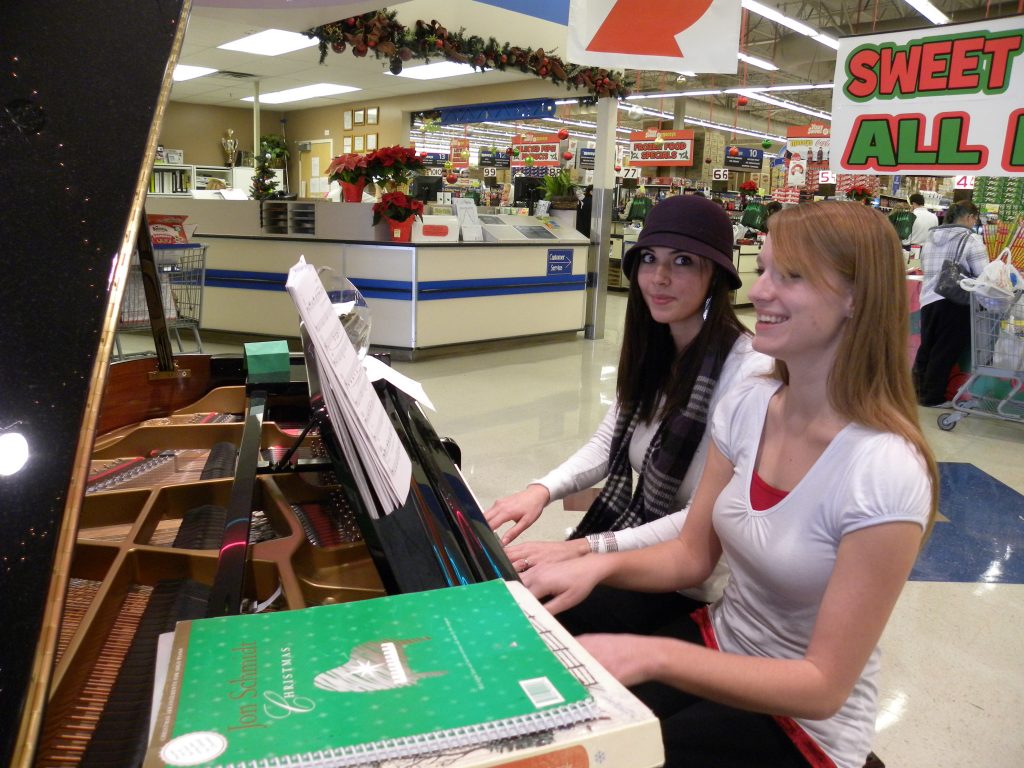
However, if you had tried to explain this phenomenon to my six-year-old-self pouting because I had to stay in and practice harmonic and melodic intervals instead of go outside and play with my friends, I never would have believed you. Still, as a high school student it was a great lesson to me: even if it takes years and years and years of drudging through the boring stuff to get to the fun stuff; you will get there. The same goes for just about anything in life, not just piano.
3. Confidence in Performing
My piano teacher made a big impact on me. When I taught my little studio I was constantly wracking my brains asking myself, “How can I be more like Laura?” One of the things she did with her students was called Performance Class where one Saturday a month we had a group lesson and learned about music history and famous composers. Most significantly, we performed for each other, kind of like a casual mini recital but without parents or Sunday dresses or bulky 1990’s-era camcorders.
I’m ashamed to say I still remember my very first Performance Class. Remember I was in first grade, only six years old, and the little song I had to play had a bunny rabbit picture on it. As it was mine and my older brother’s very first Performance Class, my mom came with us. When it was my turn to play, I crossed my arms over my chest, shook my head, and refused to get up out of my seat. For crying out loud I was not going to play my little bunny song for all those big scary kids! The thought was nothing short of terrifying.
My mom hissed in my ear demanding that I get up, but I just shook my head vehemently. I would not budge! Finally she tried to physically lift me off my chair and push me toward the piano, but I sank to the floor (not making this up!) and went all dead weight, still refusing to move. Mom tried to drag me to my feet and I made my arms all floppy so she couldn’t hold me. All this was in front of a room full of people. Now that I’m an adult I’m quite embarrassed about my behavior, but hey, I was just an obnoxious six-year-old at the time.
Finally a combination of my mom’s and my teacher’s coaxing got me off the floor and onto the piano bench. My teacher played the little duet part with me and I played that silly little bunny song. Everyone applauded politely (although I’m sure in their heads they were all uncomfortably thinking, “What a nutcase child!”) and I went back to my seat, easy peasy, as if nothing had happened.
From that day on, I was always nervous about playing for other people. Always. Every single performance class and every single recital was torture sitting there waiting for it to be my turn. In high school I learned to play the organ and I always felt like throwing up every Sunday morning before I went to play for Sacrament Meeting. Years later as a mature and well-adjusted adult, I played for my niece’s baptism shortly after my husband and I got married and still the thought of playing in front of all my new in-laws made my hands all sweaty and my stomach turn in knots. I’m a freaking grownup! You’d think I’d have gotten over this by now! Nope.
But what do I do about it?
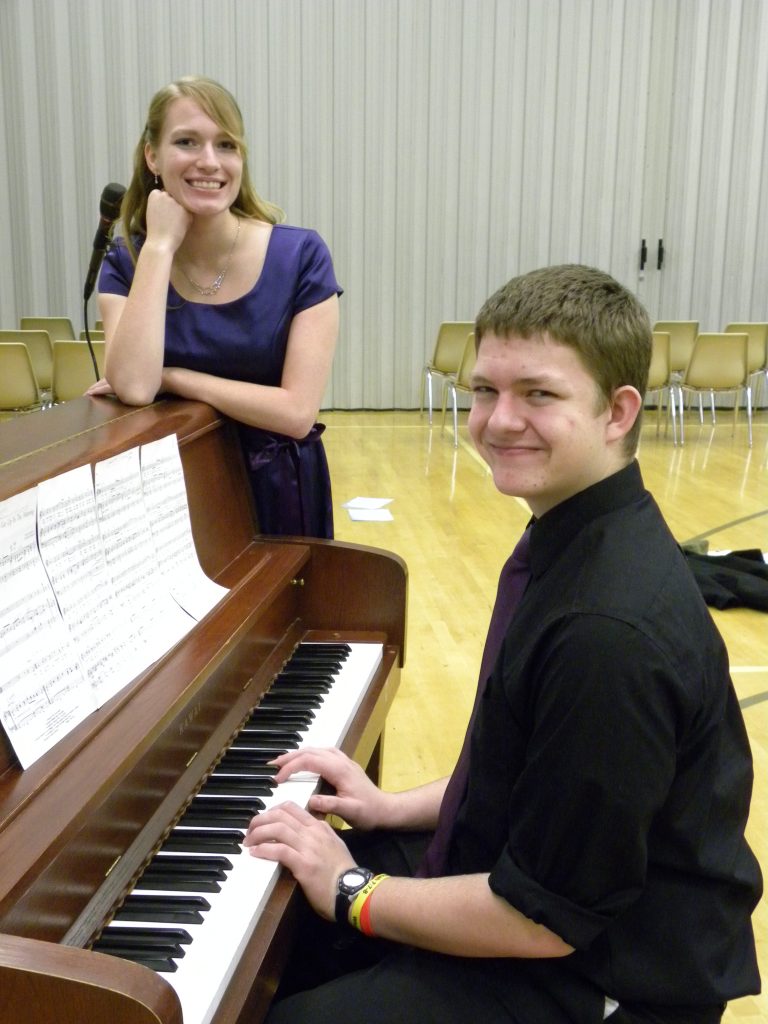
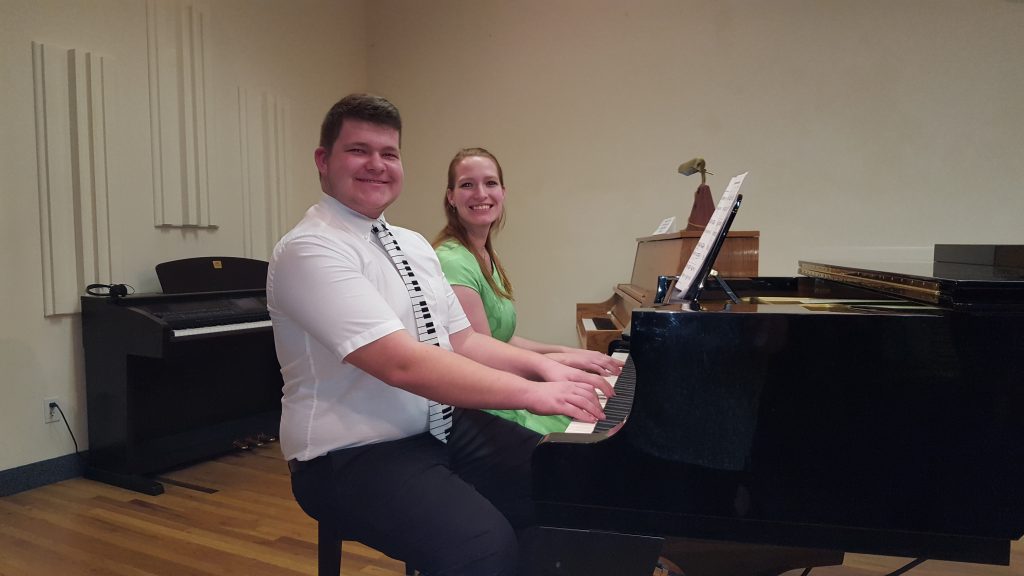
First, pretend. I learned this the hard way through years and years of attending Performance Classes. This skill is brilliant to have for life in general, particularly for public speaking. If you pretend you are confident and comfortable then people will believe you, and you may even start to believe yourself.
Second, get over it. It sounds harsh, but there’s no other way to get around the issue. It’s hard and it’s uncomfortable, but you just do it. You ignore your feelings, buckle down, and dredge up this secret, deep-down strength you never knew you had, and power through it.
Nine times out of ten you finish beautifully, realize there was nothing to ever be nervous about, and move on with your life happier and more confident in yourself than ever before.
It was thanks to years of attending monthly Performance Classes that taught me this, and more importantly, how to handle my nervousness when I get it. I no longer fall on the floor and throw a tantrum, thank goodness, but those feelings still exist and I’ve learned to be stronger than them and to simply get over it. Oh, how this has blessed my life in so many ways!
4. If I Don’t Practice and Then Do Badly, It’s My Fault (Not My Mom’s and Not My Teacher’s)
Speaking of performing, I very quickly found the best thing to make all my anxiety and nervousness a million times worse: not preparing.
Usually to calm down my nervousness I found some positive self-talk very useful: “I know this song by heart!” “This song is so beautiful!” “I’ve played this a million times!” And so on.
However, in the course of twelve years of performing for Performance Classes, there were plenty of times I was unprepared and it was the worst feeling EVER. It turned nervousness into terror and clammy hands into slippery seals, which just made playing even harder! Talk about rubbing salt in the wound. And that positive mushy gushy feely talk did nothing when I knew I was unprepared.
Whenever I came to a performance when I knew I hadn’t practiced enough, I always knew whose fault it was: mine. I quickly learned that I had to own that responsibility, especially because the person who suffered most was myself.
I’m not saying this to make all piano players (or everyone else in the world) feel bad about themselves. Mistakes and accidents happen and sometimes there is nothing we can do about it. But I learned quickly that my own practice and preparation was something only I could control, so when I slacked off it was my fault alone.
Yes, my mom made me practice nearly every day, but she usually couldn’t control the quality of my practice. She couldn’t control if I just skipped a song because it was too hard or if I ran through it as fast as possible without bothering to fix any mistakes—that was all on me. Similarly, there was only so much my teacher could do during our brief, weekly lessons to prepare me for these performances; most of it was up to me to practice, practice, practice!
Therefore I learned the hard was that I was responsible for my own performance, and if I wasn’t adequately prepared because I’d goofed off, it was my own fault. If I wanted to limit my nervousness and have a successful performance, I was in complete control of that by practicing beforehand.
5. When You Make a Mistake, Keep Going! It’s Okay!
The Number One Rule of Accompanying: If you make a mistake, keep going!
Alongside performing techniques, my teacher always drilled her students on how to properly accompany, whether it be choirs or congregations in church, vocal soloists, or duet partners, the rule was the same: keep going! If you stop and backtrack to try to fix something, everyone else will be ahead of you and then everyone will be off. All you can do is keep going.
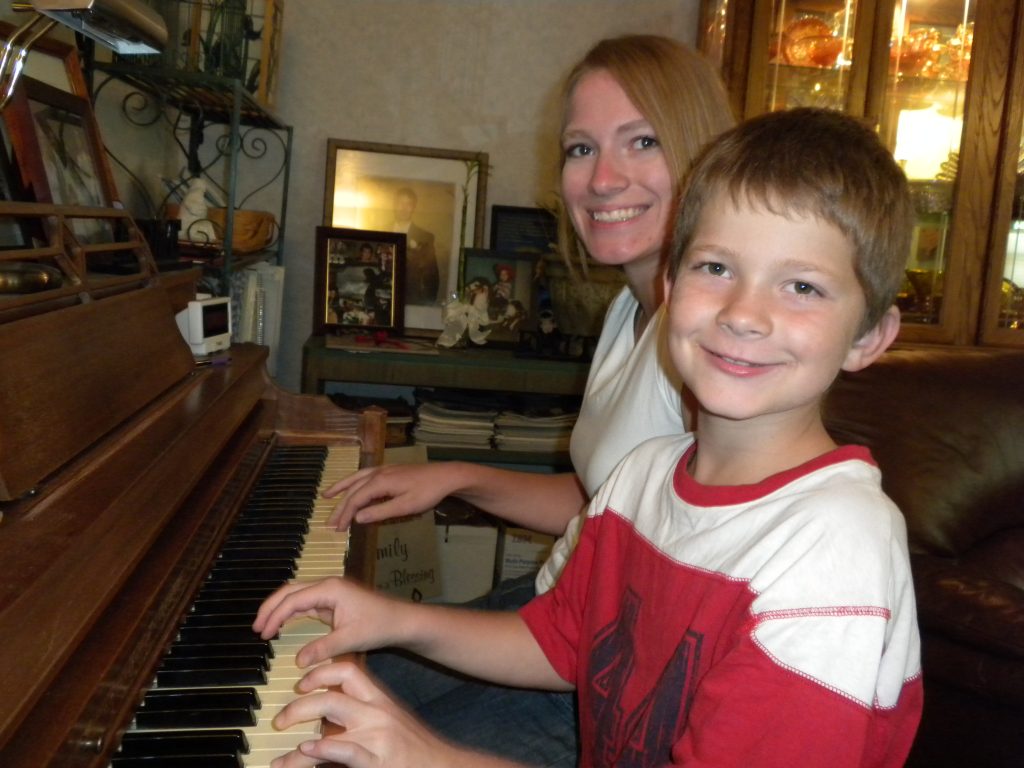
And what’s the best part about this? Most of the time people hardly notice a wrong note or two, especially if they aren’t piano players themselves. Just keep moving forward!
However, if you miss a note and then halt the entire performance to try to fix your mistake, everyone will know and it gets really awkward really quickly.
This was actually a really hard skill for me to learn. Even when playing solo pieces, I always stopped and went back to fix my mistakes which disrupted the entire thing. So often my own perfectionism just caused more problems and I had to actively learn to let it go.
What is the life application of this principle? Referring back to number 4, it’s your job to practice and prepare beforehand so you’re ready when it’s time to accompany; that’s the time to find and fix my mistakes, not during a performance. However, if you are accompanying and you make a mistake (we’re only human, after all), sometimes all you can do is say, “Oops” and then soldier on; it’s not worth it to go back and rehash every single wrong thing you did; it just makes things worse both for yourself and for the people around you.
That works really nice for small mistakes, but the same applies to big mistakes as well; just move forward.
One year I worked really hard to prepare for our fall recital. I was probably in about 9th grade and prepared an extremely difficult piece that I was quite proud of. On top of that, I’d composed a song that summer (a common and fun activity my teacher often encouraged for students who took summer lessons) and was excited when she told me I could perform that as well for our recital. I’d worked my little tail off on both pieces, and finally the day of the recital came.
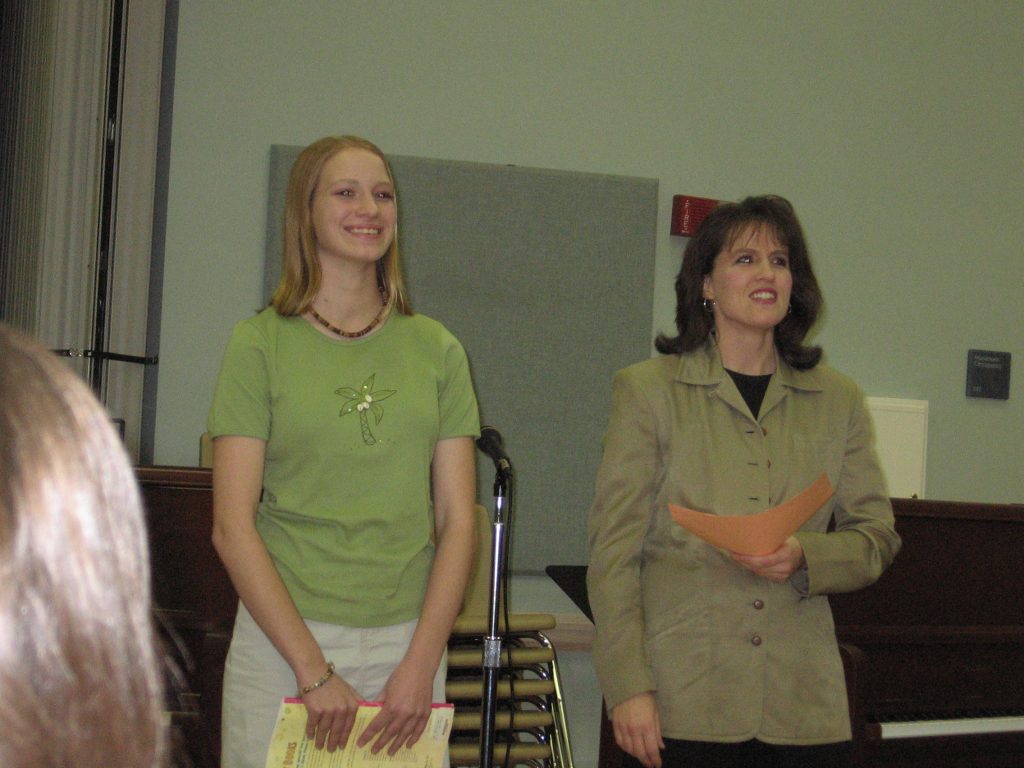
I walked into the recital hall and was shocked to see two boys from my school. One of them, it turned out, was the brother of a brand new student, and the other was his best friend. I didn’t particularly like these boys; they were big, athletic, noisy, and extremely popular. I, on the flipside, kept mostly to myself and was admittedly rather nerdy. I’d never interacted with them outside of school.
Remember that nervousness problem I had? BAM! A million times worse, right then and there. Somehow their presence just made everything worse, and to this day I’m still not sure why. Most likely, as middle school brains are obsessed with, I was afraid of what they’d think of me. Would they think I was even nerdier than before because I’d composed my own piano piece and drawn a picture of a dragon on the cover? Surely yes.
I’m sorry to say that I botched both of my songs. I’d practiced for hours and hours and hours, and the appearance of two obnoxious boys threw me so far off that I just couldn’t handle it. I stumbled through the difficult song that just the day before I could play perfectly. I just plain forgot a large part of my personal composition and botched that as well, cutting to the end early to get it over with, all in front of two of the coolest kids in my class. Overall it was my worst recital ever and I went home feeling stupid and embarrassed. Now everyone, especially those two popular boys, would think I just plain suck!
I went to my piano teacher’s house the next week for my regular lesson. For some reason I was sure that she’d be so disappointed or ashamed of me (which looking back was unrealistic of me, because she was always nothing but 100% supportive). I’ll never forget her reaction. She gave me a big hug and said, “Sometimes we just make mistakes. I know you, and I know you can play both those songs much, much better!” Then, without ever mentioning it again, she moved on and continued our lesson as normal.
I had such a beautiful sense of relief! She wasn’t mad, she didn’t lecture me, she didn’t hold it over me, and I wasn’t punished or fired or anything like that. She taught me that indeed, sometimes we just make big, embarrassing mistakes, but we simply move on and try to do better next time.
I equate this lesson not only with regular life, but also with our Heavenly Father. Sometimes we make little mistakes and can simply say, “Oops” and very few other people will even notice.
Other times, we really mess up and wreck everything. Sometimes we may have to face our Heavenly Father and fear punishment or disappointment, but I think more often than not He’d hug us and say, “I know you, and I know you can do much, much better!”
This isn’t a criticism or disappointment for unmet expectations, but an honest look into our hearts. My teacher knew I knew how to play both those songs; she’d helped me perfect them for weeks! She also knew I was human, and she didn’t hate me for messing up. Similarly, Heavenly Father knows you and he knows what you’re capable of and what you’re not. He also knows that you’re still learning, and he doesn’t hate you for messing up, even if you know better.
